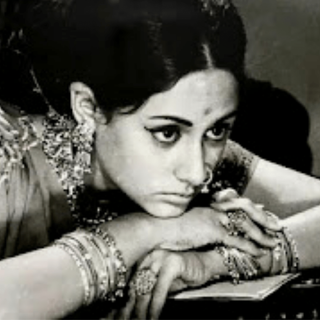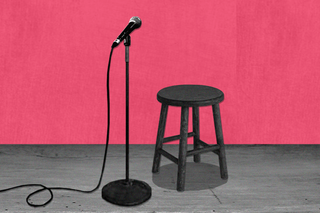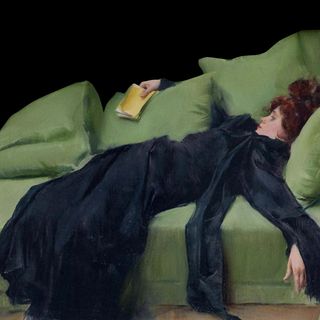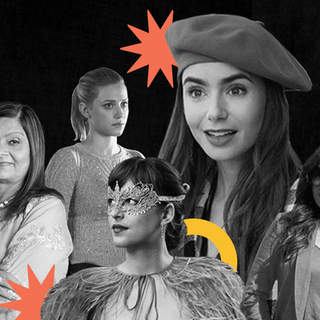
What Is Comedy’s Purpose in a Country Like India?
Munawar Faruqui’s persecution ushers in the era of “thoughtcrime,” making it imperative to ask why comedy remains a platform for advancing social justice.

Comedian Munawar Faruqui made a somber announcement on Sunday. The steady stream of threats from Hindutva groups made it impossible for him to do stand-up comedy; over the last two months, almost 12 of Faruqui’s shows were canceled. What started in January over jokesFaruqui never made has unraveled into a spiral of hatred and intolerance. He says he is “defeated,” and with him, so is the truth.
“Humour is a great way for us to have evolved so we don’t have to hit each other with sticks,” Scott Weems, a cognitive neuroscientist, told BBC Future. Munawar Faruqui’s persecution signals a societalregression like none other. The moment we find ourselves in makes it important to revisit why comedy is thought to have served a social function, and why it must remain a platform to advance social justice.
In contemporary times, truthtelling may also form the bedrock of dissent and reformation. Avner Ziv wrote in Personality and Sense of Humor: “comedy and satire possess a common denominator in that both try to change or reform society by means of humor. The two forms together constitute the best illustration there is of the social function of humor.”
This makes sense; many agree in comedy, there is truth, taboos are broken, powerful people are held accountable. Research also confirmed the evidence of these functions; comedians are increasingly challenging “stereotypes and dominant discourses that marginalize and stigmatize particular individuals”, Sharon Lockyer, a sociology lecturer, wrote in her study. If comedy’s social purpose is for betterment, Muslim and marginalized comics are doomed to partake in an insidious zero-sum game.
Think of it as a thought-crime, a phrase popularized by George Orwell’s classic 1984. Imagine a state where citizens can be penalized for committing a crime merely by the act of thinking anti-establishment thoughts. This is disturbing for obvious reasons. “Your thoughts are the most personal possession that you have,” writer Maureen Collins noted. Even more scary and dangerous is the idea of someone’s persecution for thoughts that were socially imposed on people to vilify them.
Which applies to the situation today, as Faruqui and many other religious-minority comedians face FIRs and threats for words they may or may not have said. It is the era of thought-crime, but more than that, it is the era of penalizing people based on constructed realities primed against a minoritized group.
Related on The Swaddle:
Faruqui, and the section of comedians he represents, face a disproportionate amount of scrutiny and punishment because of Islamophobia. “Faruqui’s harassment and arrest in particular showcases the ease with which laws that supposedly protect communal harmony can become tools to foment discord between religious/community groups,” Aditi Murti previously wrote in The Swaddle.
When people spoke of the social potency of comedy, the digital construction of reality hadn’t caught up. Now, the cycle of fake news and polarization, in tandem with thepolice and judiciary who would rather stay quiet, views people’s very identity as antithetical to the establishment. And in a country where dissent is tied to anti-nationalism, religious and ideological beliefs both work against artists. Individually, a good joke can make us better people. But what happens when the joke is never really said out loud? When sentiments are hurt, reality is distorted, and suppressing free speech is justified, what happens to the ideological and moral growth of people? Where sticks and stones can break ideological bones, the persecution is normalized because, like Faruqui lamented, hate does win.
It is a leaden inquiry into what comedy is supposed to be. There are many theories of humor; from Plato and Aristotle, Charles Darwin and Sigmund Freud, to philosopher Thomas Hobbes — the nooks and crannies of humor have fascinated people. India has a thoroughly documented history of court jesters; they were the “fools” whosestories packed disquieting truth in mirth and amusement. Think Birbal, the advisor to King Akbar, or Tenali Raman, the royal poet to King Krishnadevaraya. “It is in the nature of jesters to speak their minds when the mood takes them, regardless of the consequences,” a researcher argued. “They are neither calculating nor circumspect, and this may account for the ‘foolishness’ often ascribed to them.”
In theory, then, comedy has the ability to shape value systems and understandings of the matters of society as a whole. It is said to be the “delivery system of truth.” But comedy has a new social function in India. It may have helped converge the ideological chasm that exists in a polarized society. Now, the chasm threatens to engulf comedy as a whole — more so for Muslim voices and artists.
Jamie Masada, an American comedian, once said. “We need comedy like air to breathe.” Perhaps, Muslim suppression and lack of political will make it hard to breathe as they pollute what is fundamental to our existence — the ability to laugh and critique.
Saumya Kalia is an Associate Editor at The Swaddle. Her journalism and writing explore issues of social justice, digital sub-cultures, media ecosystem, literature, and memory as they cut across socio-cultural periods. You can reach her at @Saumya_Kalia.
Related


It’s Okay: To Quit Things
